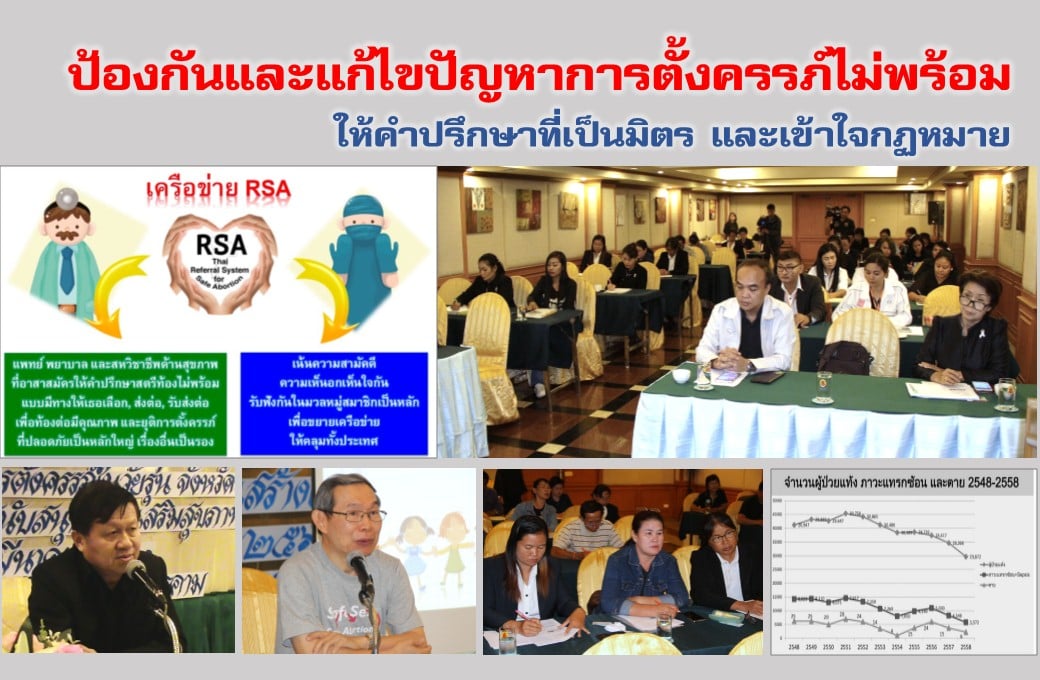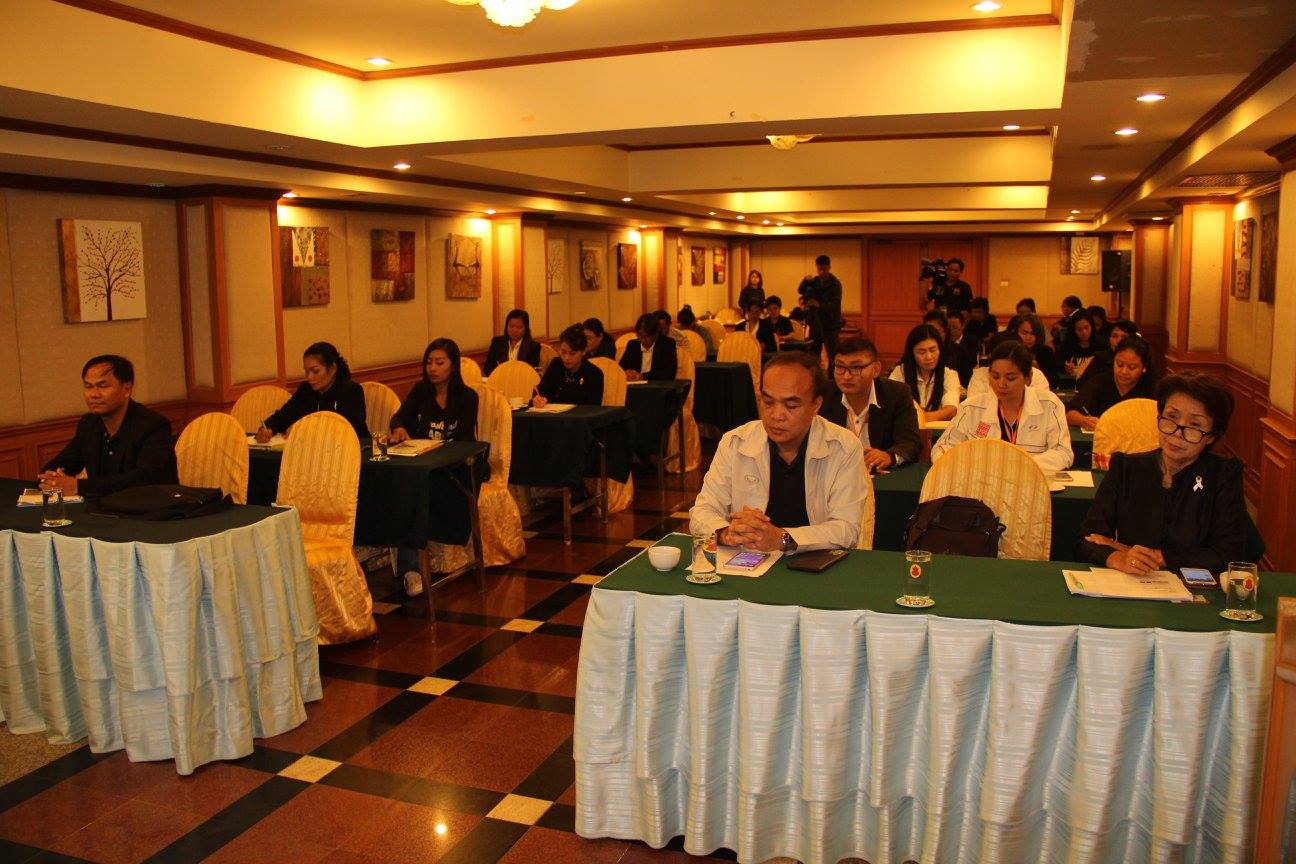
Maha Sarakham Province mobilizes networks to prevent and solve the problem of unplanned teenage pregnancies, joining in developing friendly counseling skills and understanding abortion laws
At the meeting room of Taksila Hotel, Mueang District, Maha Sarakham Province, those responsible for preventing and solving teenage pregnancy issues from Maha Sarakham Hospital, Wapi Pathum Hospital, Kantharawichai Hospital, District Public Health Office, Maha Sarakham Child and Family Shelter, Village Health Volunteers (VHV), and community leaders in the areapiloted in 3 districts, 6 sub-districts, totaling 40 people, participated in training to develop counseling skills for service providers in friendly services for teenagers. The project to prevent and solve teenage pregnancies in Maha Sarakham Province was opened by Mr. Kimhan Yongratanakit, Provincial Public Health Doctor of Maha Sarakham, as the project chairman.

Dr. Rueangkitt Sirikanjanakul, RSA Network Coordinator (or the Network for Safe Abortion Referral according to the law and Medical Council regulations) revealed 10 reasons why women with unplanned pregnancies do not rush to solve the problem, such as not daring to ask friends or close ones, having no one to confidently consult, having no one to take them to the doctor, feeling ashamed, fearing others will know, not knowing service locations, finding it hard to tell the doctor, fearing the doctor will ask why they didn’t prevent it, and having no money. This negatively affects women with unplanned pregnancies who do not receive timely care, which may lead to unsafe miscarriages and abortions, and possibly death. Breaking this problem cycle involves “having doctors and nurses empathize with those seeking consultation in a friendly service manner, with friendly eyes and words, not speaking harshly, as these patients are sensitive.” Additionally, doctors and nurses should study the laws related to abortion, which can be performed under legally specified conditions.
Dr. Rueangkitt Sirikanjanakul, RSA Network Coordinator, stated that abortion when the pregnancy is far along increases danger by 37%, while doctor-performed abortions have a lower mortality rate, at 1 in 100,000 cases. If performed by a doctor when the pregnancy is less than 8 weeks or not more than 2 months, the mortality rate is only 0.1 in 100,000 cases. In contrast, normal childbirth has a higher mortality rate, at 25 in 100,000 cases.
Currently, unplanned pregnancies among teenagers are a social problem that has not yet been resolved and can lead to other issues, such as abandoned children and orphans, who may become societal problems. Therefore, teenage girls who are about to become young mothers need close care, as some may not know how to conduct themselves during pregnancy, resulting in a lack of care, complications, miscarriage, low birth weight, and premature birth.
